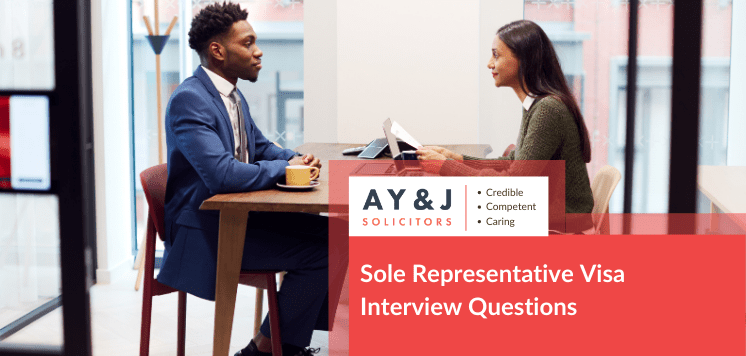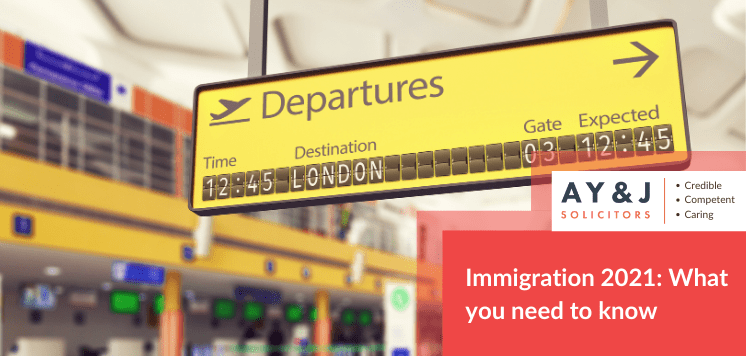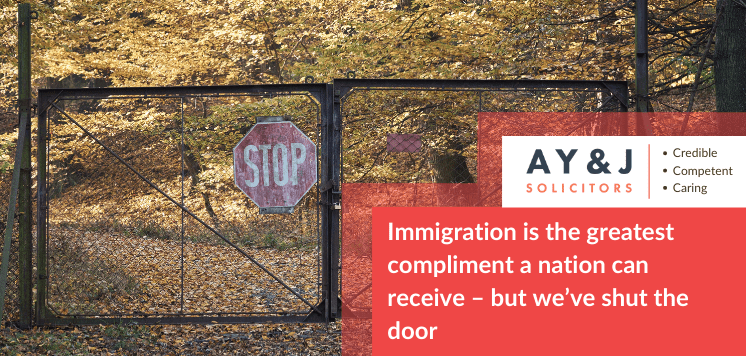Disclaimer: The information in this blog is accurate as of its publication date. Any updates after that date are not reflected here.
The Home Office has confirmed that effective from 9AM on 11 April 2022, the Sole Representative visa route will be closed to new applicants.
Self Sponsorship is a good alternative to consider if you’re considering business opportunities within the UK. A UK Sponsor is not required and this can lead to permanent residency and British citizenship for yourself and your family.
Every business likes to grow and the Sole Representative visa offers the chance for businesses outside the UK to grow here. The UK is the 5th largest economy in the world and hence, a lucrative investment option for many businesses.
This visa allows you to test the market with little to no cost by sending a senior employee as a representative of your business. This visa has certain fixed steps and requirements the applicant needs to meet and has been increasingly difficult to obtain in recent years. One of the biggest hurdles in this application is the interview stage.
Each application is assessed on a case by case basis and not all applicants will be invited to an interview. Should you be invited to an interview with the Home Office, this will be your only opportunity to convince the authorities that your intention to move to the UK to establish a presence on behalf of your employer is genuine and you have sufficient experience to undertake this task.
This interview can be the opportunity to overcome any shortcomings in your application. However, we have noticed that applicants are often refused based on their response in the interview as they fail the reflect the full extent of their knowledge in the company due to nervousness. The best course of action is, therefore, to be prepared and understand that the purpose of this interview.
Very often, applicants are only called for an interview if the Home Office feels that they need more information before they can make a decision on the application, and usually this is to determine the genuineness aspect of the application.
The questions will of course be different for every person depending on their experience with the company, their proposed plan for the UK and their respective industry. However, we can give you a general idea of things that could be asked and soon you will realise that the interview is not an exam but just a general conversation between you about your business ventures.
Table of Contents
So, the few simple and common sole representative visa questions that can be asked are as follows:
About your job: One of the most important questions that will be asked is about your current job title with the company you will be representing in the UK. Since there are very specific guidelines as to who can and cannot qualify for a sole representative visa.
They will ask you about your hiring, the time you have spent in your job, your experience in the field and why you were selected as the representative over other employees. This is nothing new but everything you have lived through and hence should be easy to answer as there is no wrong answer to these questions.
About the company: The company you will be working for is, of course, a major interest for the authorities. They will ask you about their management styles, the board of directors, senior management, and so on. The company needs to be clear of any major debts as that would be an issue.
Subsidiary or Branch in the UK: If you submit a business plan with your application, the Home Office will also ask you questions on the plan to ensure you are familiar with the company’s plan for its entity in the UK.
Although it is unlikely that the Home Office will not hold it against you if you decide to deviate from the initial business plan once you are in the UK, you will need to have in depth knowledge in this plan at the interview in order to demonstrate the genuineness of your application. Once your application is granted, we also advise not to drastically deviate from the initial business plan unless you can justify this with evidence as this too may raise questions on the genuineness requirements in your future applications.
Financial Status: Your economic status plays a vital role in your application getting approved. The Home Office is interested in your financial status personally to ascertain whether you will be able to support yourself financially in the UK as one of the conditions on this visa is that you will not have access to public funds. You will therefore need to demonstrate that you have sufficient funds to accommodate and maintain yourself so as not to become a financial burden on the state.
English Language: One of the biggest challenges faced by people from non-English nations is the language barrier. Even though English is spoken around the globe, not everyone learns it well enough. Although your interview can be conducted in a language of your choice, not being able to speak English might be a deciding factor as the Home Office may question your ability to negotiate commercial deals in the UK which may inadvertently affect the genuineness of your application.
Criminal Records/ Civil Offence: You cannot have any criminal records or civil office which may indicate that you are not of good character or reckless in your financial management. Your character is an important factor throughout your time in the UK because it could affect your status and future immigration applications if it was later proven that you cannot meet the good character requirement.
Your family: The authorities will ask about your family and dependants. They could ask if you plan to come to the UK with your family. If yes, they will ask whether you handle the added financial stress in a foreign nation and what the care and accommodation arrangements for any minor dependants will be.
Previous Applications: They might ask you about any previous applications that you may have made that may have gotten rejected. If yes, then they might ask you the reason as to why the application was refused and if that factor is still applicable.
We hope you get an idea with these pointers as to what kind of questions may be asked from you. For more information on the application process visit here!









